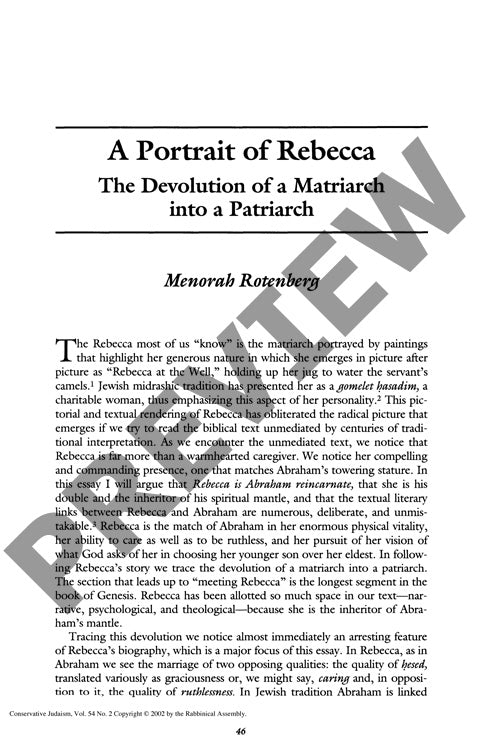A Portrait of Rebecca the Devolution Of
Couldn't load pickup availability
Rebecca, far from the simple charitable figure at the well portrayed in traditional interpretations, emerges as Abraham's true spiritual successor and equal through careful analysis of Genesis 24-28. A comprehensive examination using psychoanalytic theory, feminist scholarship, and close textual analysis reveals a commanding matriarch who deliberately assumes patriarchal power. By tracking key Hebrew words (leitwort) such as "seeing" (Ra-A'H) and "voice" (KoL) across generations, and applying family systems theory with genogram analysis, striking parallels emerge between Rebecca and Abraham's leadership styles - both combining caring (hesed) with ruthless pursuit of divine vision. Her "Homeric heroism" in watering ten camels, decisive break from her family, and strategic manipulation of the blessing narrative demonstrate unprecedented female agency in biblical literature. Yet Rebecca's transformation from matriarch to patriarch proves problematic: her disappearance from the text without recorded death or burial suggests possible divine judgment for assuming power traditionally reserved for God. This tension between human agency and divine authority offers new insights into the complex power dynamics of biblical narrative and challenges conventional understandings of gender roles in patriarchal literature.

More Information
-
Physical Description
-
Publication Information
Published
ISBN
-
Publication Credits
Menorah Rotenberg

